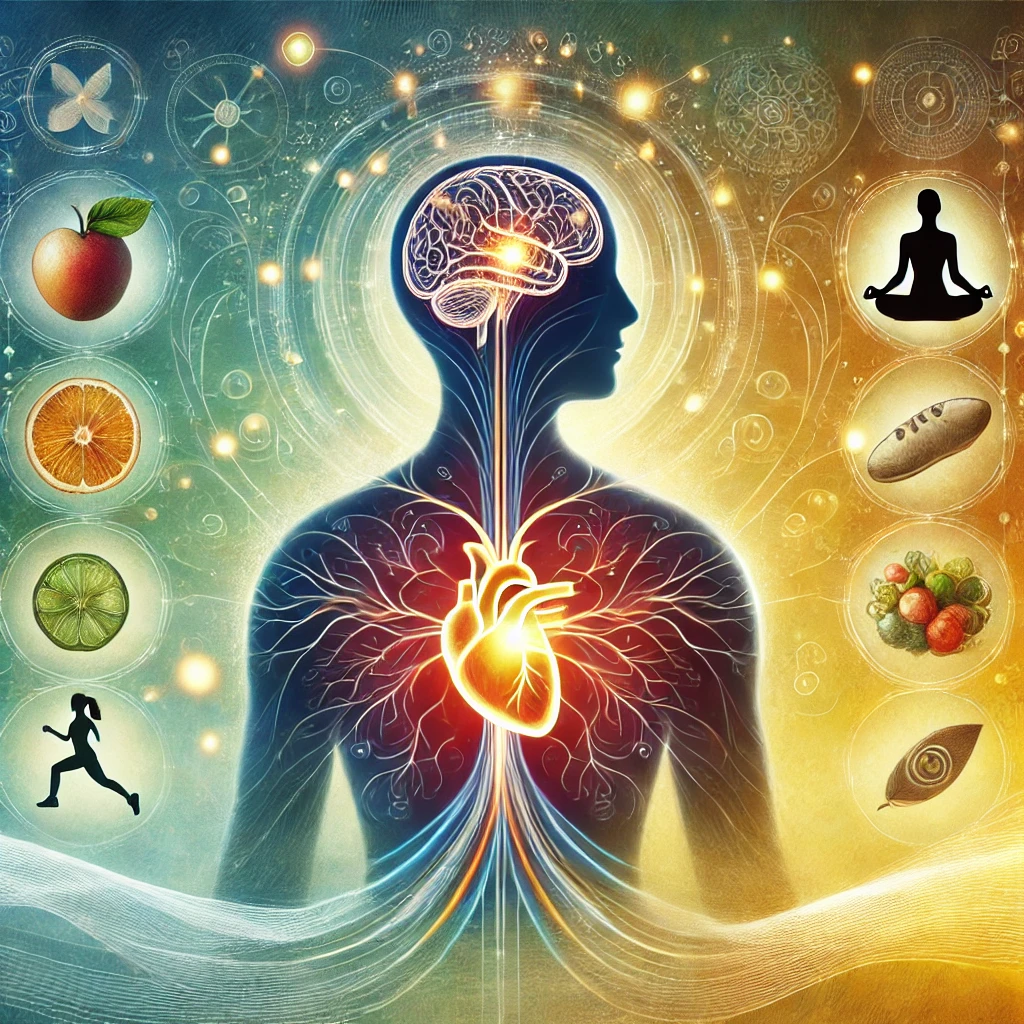Introduction
Imagine a busy professional, juggling deadlines and personal commitments, who begins to experience chronic back pain. Despite multiple visits to doctors and physical therapists, the pain persists. It’s only after addressing underlying stress and anxiety that the pain begins to subside. This story underscores a profound truth: our mental and physical health are deeply intertwined. According to the American Psychological Association, chronic stress can contribute to conditions such as heart disease, obesity, and diabetes, illustrating the powerful impact of mental health on physical well-being.
Understanding the Mind-Body Connection
The mind-body connection refers to the interplay between our thoughts, emotions, and physical health. Scientific research increasingly supports this relationship. The nervous system, endocrine system, and immune system form an intricate communication network that connects our mental and physical states. When you experience stress, for example, your body releases cortisol, a hormone that prepares you for “fight or flight.” While this response is vital for short-term challenges, prolonged stress can weaken your immune system, increase blood pressure, and trigger inflammation, creating fertile ground for illnesses.
Psychosomatic Effects: When the Mind Affects the Body
Psychosomatic symptoms occur when psychological stress manifests physically. Examples include tension headaches, irritable bowel syndrome (IBS), and even skin conditions like eczema or psoriasis. Conversely, positive mental states can improve physical health. Studies have shown that practicing gratitude and maintaining a positive outlook can lower cortisol levels and enhance immune function.

The harmony between mind and body.
Habits to Foster a Strong Mind-Body Connection
1. Meditation
Meditation helps calm the mind and reduce stress by activating the parasympathetic nervous system, which counteracts the stress response. Techniques such as mindfulness meditation have been proven to lower cortisol levels, reduce inflammation, and improve overall mental clarity. A Harvard study revealed that meditation could even change brain structure, enhancing regions associated with memory, learning, and emotional regulation.
2. Regular Exercise
Physical activity not only strengthens the body but also benefits the mind. Exercise releases endorphins, often referred to as “feel-good” hormones, which elevate mood and reduce stress. Activities like yoga uniquely combine physical movement with mindfulness, offering a holistic approach to well-being.

Balance and unity.
3. Healthy Eating
Your gut health profoundly influences your mental health. The gut-brain axis is a communication network linking your gastrointestinal tract and brain. A diet rich in whole foods, fiber, and probiotics can promote a healthy gut microbiome, reducing inflammation and supporting mental health. For instance, fermented foods like yogurt and kimchi are associated with reduced symptoms of anxiety and depression.
Real-Life Stories and Research Findings
Consider the case of Maria, who suffered from debilitating migraines for years. Traditional treatments provided only temporary relief. When she adopted a holistic lifestyle, including mindfulness practices and dietary changes, her migraines dramatically reduced. Her experience aligns with research highlighting the benefits of holistic interventions in managing chronic conditions.
Similarly, a 2020 study in Frontiers in Psychology found that individuals who practiced mindfulness reported improved emotional resilience and reduced physical symptoms of stress.

Tink between nutrition and mental well-being.
Actionable Steps to Strengthen Your Mind-Body Connection
Here are practical strategies you can start implementing today:
- Set Aside Time for Mindfulness: Dedicate 10 minutes daily to meditation or deep breathing exercises.
- Stay Physically Active: Find an activity you enjoy, whether it’s dancing, walking, or strength training, and aim for at least 30 minutes of exercise most days.
- Nourish Your Body: Incorporate more whole foods, fruits, and vegetables into your diet, and experiment with fermented foods to boost gut health.
- Practice Gratitude: Keep a journal to note three things you’re grateful for each day, cultivating a positive mindset.
- Seek Support: Don’t hesitate to consult professionals, whether a therapist for mental health or a dietitian for nutrition guidance.
Conclusion
The mind-body connection is not just a concept but a scientifically validated framework for holistic well-being. By nurturing this connection through mindfulness, exercise, and healthy habits, you can unlock a life of balance and vitality. Take the first step today and experience the transformative power of harmony between your mind and body.







Leave a Reply